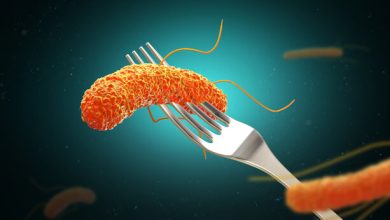How many calories should I eat?

The amounts of calories we need each day are determined by various factors, including metabolism, age, height, lifestyle, level of physical fitness, and the type and quantity of food consumed. Calorie intake for healthy weight may vary from person to person depending on their weight and other health factors. Knowing the required calorie intake standards might help you determine your calorie range. These differ depending on whether you’re an adult, a teen, or a child.
Adults should consume around 2,000 calories per day on average, but this might vary. Check out this easy approach to finding your recommended daily calorie consumption.
What are calories?
A calorie (or kilocalorie, as it’s formally referred to) is a measurement unit for the amount of energy your body produces from the food you eat.
The more calories a food product has, the more power/energy it provides. When your calorie intake reaches the range of calories your body requires, the extra calories are stored as fat.
The calorie content of various foods varies. It indicates that the three macronutrients your body needs, carbs, proteins, and fats, do not contain the same amounts of calories. Calorie intake for a healthy weight may also vary depending on how active you are during the day.
How many calories should you consume daily?
The answer will differ from person to person based on height, weight, age, metabolism, overall health, and physical fitness. The one-size-fits-all strategy is ineffective here.
If you want to reduce weight, you should consume 500 calories fewer than your body requires.
This strategy will help you maintain your present body weight in the long term. The number of calories you should take every day varies.
Required Calories intake for women –
- Women between the ages of 26 and 50 who are moderately active require around 2,000 calories per day.
- Active ladies (those who walk roughly 5 kilometers each day) will most likely require 2,200 calories per day.
- Women in their early twenties require more calories to maintain their weight, often about 2,200 calories per day or more.
- Women over the age of 50 require fewer calories, around 1,800 calories per day.
The above number about daily calories intake may not be appropriate for you if you are pregnant or nursing. Consult your doctor about your choices.
Require Calories intake for Men –
- Men between the ages of 26 and 45 who are moderately active require 2,600 calories per day.
- Active men (those who walk 5 kilometers each day) require around 2,800 to 3,000 calories per day.
- Men aged 19 to 25 require roughly 2,800 calories per day.
- Men between the ages of 46 and 65 require 2,400 calories each day.
- Mens above the age of 66 will most likely require 2,200 calories per day.
Required calories intake for children –
- Children’s calorie requirements differ considerably.
- While a typical toddler may require 1,200 to 1,400 calories per day, moderately active teens would most likely require 2,000 to 2,800 calories per day.
Can lesser calorie consumption help to lose weight?
Although reducing or limiting your calorie intake might help you lose weight. It is not a sustainable way to lose weight if you do not evaluate your calorie intake of meals.
Picking more nutrient-dense foods, such as whole grains, nuts, vegetables, and fruits, boosts your health more than choosing nutrient-poor meals such as soda, doughnuts, and candies.
Every person requires a varied caloric intake each day, which is determined by a variety of factors like age, gender, lifestyle, heredity, and so on.
It would be best to count on your daily calorie intake to maintain a healthy weight.
How can I reduce my calorie consumption without being hungry?
Dieting is frequently confused with starving oneself to lose weight. This, however, is not the case. Dieting balances your healthy food intake rather than just fasting for an extended period. Here are some suggestions for reducing calorie consumption and losing weight —
- Drink a lot of water – Drinking extra water is one of the simplest methods to keep your stomach full for a longer period. More than 96 calories may be burned by drinking 8-glasses of water each day. This is the most basic and effective approach to reducing Calory intake for a healthy weight. However, if you want to lose weight, you need to regulate your water consumption schedule. Drinking water before meals can help to reduce your appetite and cause you to eat less. It also increases your metabolism.
- Protein-rich diet – When trying to reduce weight, consume high protein, low carbohydrate foods. It is the most efficient approach to reduce weight with the least amount of work. Protein may raise the metabolic rate, which necessitates a lot of energy and results in increased calorie burn. A high-protein diet not only helps you lose weight but it also helps you keep it off. It also reduces your hunger and appetite.
- Limit carbs consumption – Cutting off carbohydrates from your diet might be an efficient way to reduce weight. It also lowers your appetite and causes you to consume fewer calories. Consuming a low-carb diet might cause you to lose weight two to three times quicker than a calorie-restricted, low-fat diet.
- Reduce your junk food intake – It is one of the most crucial factors in reducing weight. Junk food and bakery items are high in carbohydrates and are bad for your health. So, before purchasing or consuming any packaged junk food, always read the labels. By Limiting your consumption of junk food, you can maintain a decent amount of Calorie intake for a healthy weight.
- Avoid sugar and sugary products – It is a simple method of reducing sugar from your diet. This includes sugar beverages, juices, and any other sugar-containing goods. Obesity is caused by high sugar consumption. It also raised the likelihood of developing diabetes and dental difficulties.
- Regular exercise – To lose weight, you must combine regular exercise with a healthy diet. Keep both items in mind for speedy results. Exercise regularly can help to build your muscles and minimize fat accumulation in your body.
Conclusion –
If you’re attempting to lose weight, you want to maximize nutrients while reducing calories to fulfill your body’s demands while being in a modest calorie deficit. Restricting your calorie intake too much by eating very little might harm your health and cause your metabolism rate to slow.
To reduce weight healthily, you should ideally ensure good eating. You can also consult a dietitian at PRK hospital Hyderabad to know in detail about your calorie consumption depending on your overall health and fitness.



